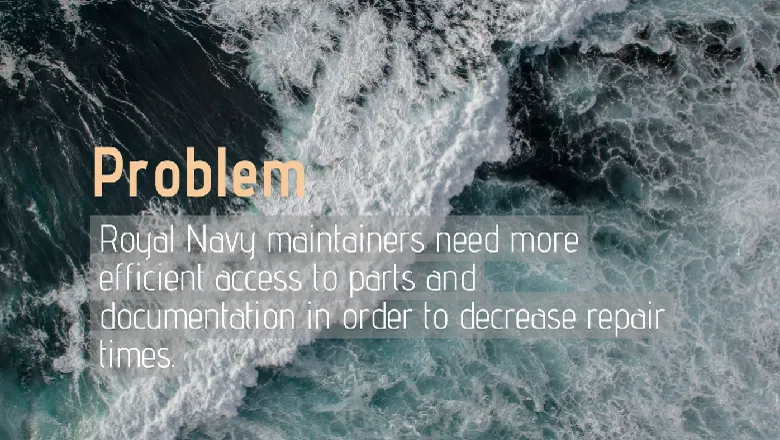It is a welcome change from more theoretical and academic approach to studying security/defence. I do not see a better way to learn about this than being exposed to one of the largest government departments in the UK and being able to speak with military personnel, civil servants, and relevant stakeholders in the private sector from a variety of different ranks, positions, and backgrounds.
Tobias Grainge, H4MoD Student
07 June 2021
War Studies students solve defence problems at international conference
Three teams on the MoD Hacking for Defence module pitched their ideas at the 2021 Defence Disrupted Conference

MA students from the Department of War Studies pitched their ideas aimed at solving real problems faced by the Ministry of Defence (MoD), at an international conference in the spring. The presentations marked the completion of the innovative Hacking for Ministry of Defence (H4MoD) module, which they took as part of their Masters in the Department.
This year saw the first cohort of War Studies students completing the module, following its successful UK pilot at the Defence Studies Department in 2019.
Three of the teams were chosen to pitch their developed solution ideas at the 2021 Defence Disrupted conference, a two-day high-level conference which brings together leading defence stakeholders, decision makers, key innovators and entrepreneurs to drive practical change.
Team Advanced Defence

The team investigate The Royal Navy issue of access driven efficiency
In undertaking this special module, students were grouped in one of ten teams tasked with responding to a real-world problem put forward from the Ministry of Defence. The teams were then required to research and capture customer needs, continually gather feedback through close engagement with the actual military, Ministry of Defence and other government agency end-users, and utilise a range of relevant methodological lean start-up tools and techniques drawn from the business/start-up world.
H4MoD is an accredited, applied MA module open to all MA students in the Department of War Studies, supported by the Common Mission Projectand is sponsored by the Ministry of Defence. It is an interdisciplinary and entrepreneurial module, based on the Hacking for Defense (H4D) programme initially developed at Stanford University that provides students the opportunity to engage directly with the Ministry of Defence to better address the nation's emerging threats and security challenges proposed by UK government sponsors.
H4MoD is by far the most rewarding course I have taken in my four years in higher education. The most exciting thing about the experience was having the unique opportunity to interview dozens of MoD stakeholders, knowing that your research could have a real-world impact in solving a national security problem. It has also been the most challenging course I have taken. Learning (and simultaneously applying) the lean start-up methodology, while rapidly getting to grips with an ever-evolving understanding of my team's problem concept within a fast-paced start-up environment, are just some of the challenges you face taking H4MoD.
Daniel Ben-Shaul, H4MoD Student
The H4MoD module is very analytical and critical, and the in-class discussions of other modules already prepared me to be agile, creative, and proactive. While my other modules and the given problem do not overlap content-wise, critical thinking and a demanding environment have been a red thread throughout my time at King’s College London.
Or Goldenburg, H4MoD Student


